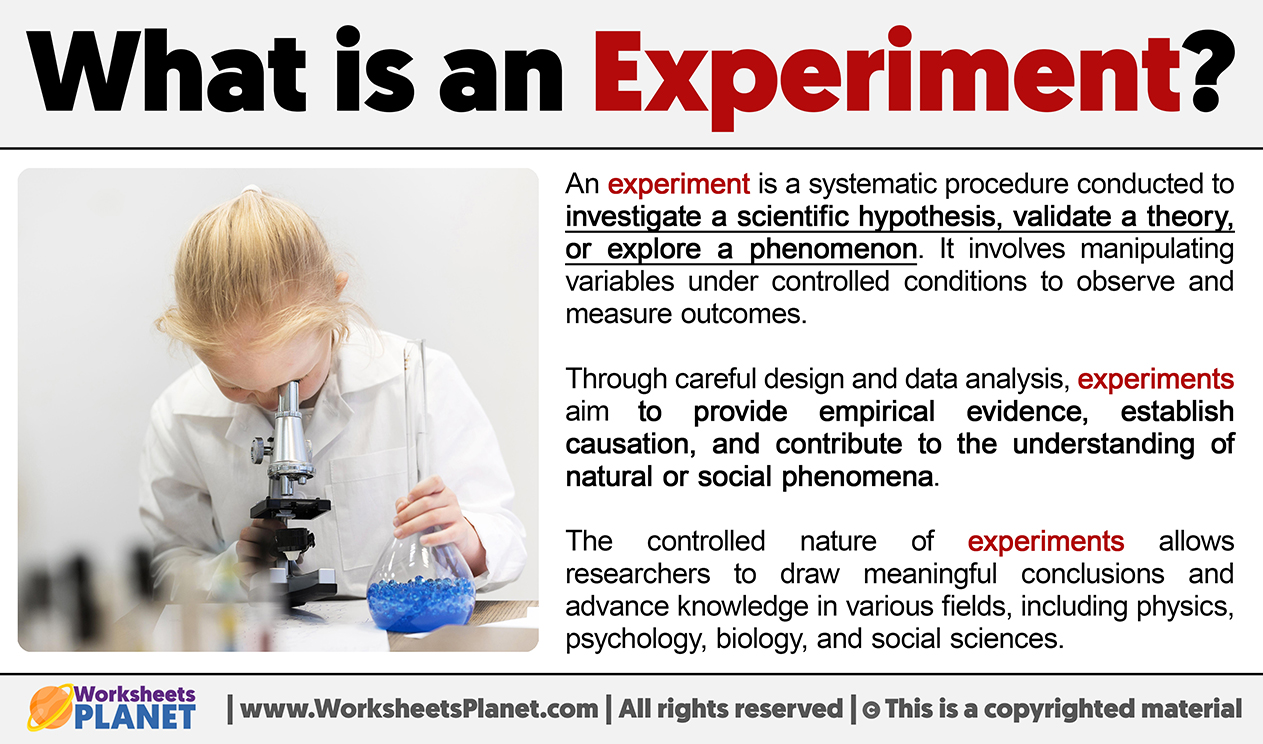An experiment is a procedure that scientists use to learn more about various phenomena. They conduct experiments to answer questions or check if something works the way they think it does. In an experiment, scientists change different variables and observe what happens.
Experiments help scientists provide empirical evidence, establish causation, and contribute to the understanding of natural or social phenomena.
“Pavlov’s Dogs” was an experiment that took place in the 1890s and was conducted by the scientist Ivan Pavlov. He demonstrated how animals could be trained to associate a neutral stimulus (like a bell) with a reflex response (salivating).


